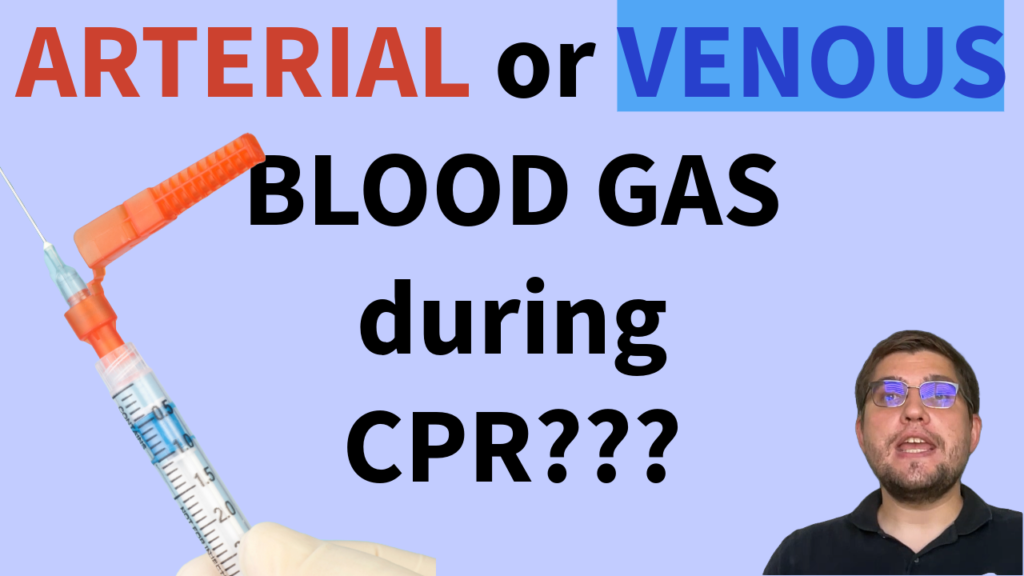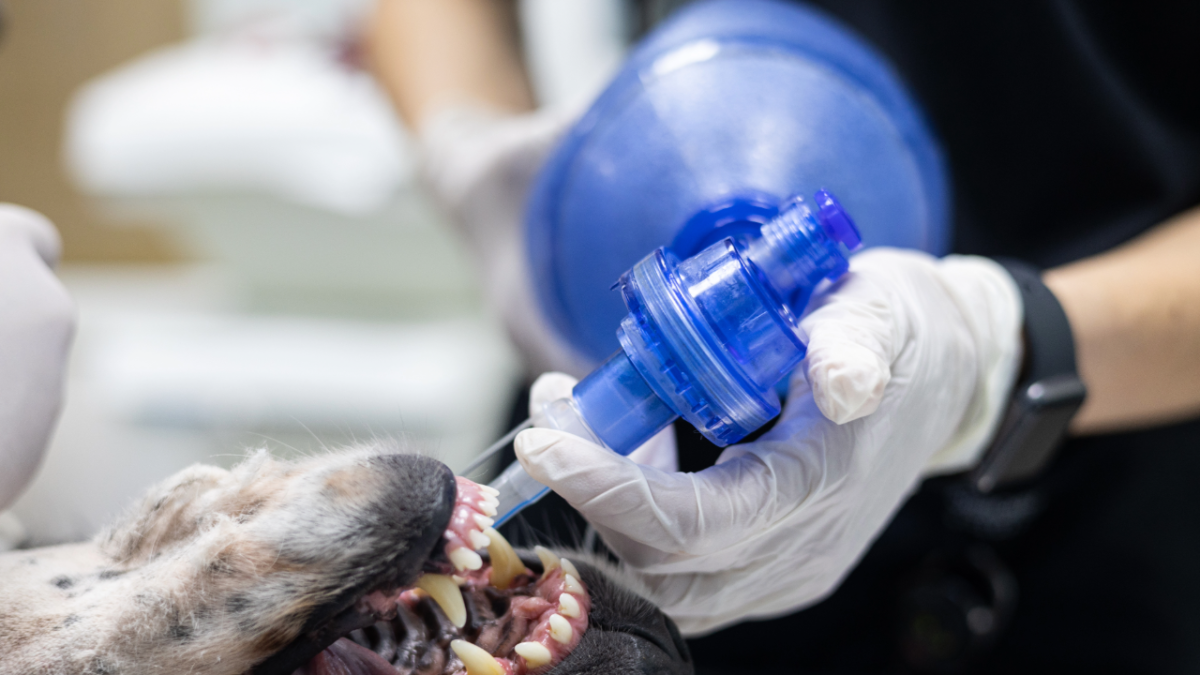Cardiopulmonary resuscitation (CPR) can be a chaotic event, requiring rapid decisions and careful management of both basic and advanced life support. Among the tools used to assess patient status during resuscitation is point-of-care blood gas analysis. But one question arises: Is there a clinical advantage to using arterial over venous blood gas during CPR in dogs and cats, or can venous samples provide equally useful information?
In a recent study, researchers explored this exact question, looking at blood gas values in dogs undergoing CPR to see whether venous blood might stand in for arterial blood in critical situations. Let’s dive into what they found and what it means for veterinary practice.
What the Study Looked At
The study, published in the Journal of Veterinary Emergency and Critical Care, used 24 research dogs to compare arterial and jugular venous blood gas values during CPR. The researchers aimed to answer a key question: Can venous blood provide the same information as arterial blood during resuscitation? This is an important consideration, as arterial blood sampling can be more difficult and time-consuming during a crisis.
The dogs were part of an unrelated terminal teaching laboratory involving laparoscopic surgery. After anesthesia and euthanasia, basic life support (BLS) was initiated using chest compressions and ventilation following the RECOVER guidelines.

Four Different Ventilation Approaches
Each dog was assigned to one of four ventilation methods:
- Endotracheal intubation with a bag valve mask on room air
- Tight-fitting mask with a bag valve mask on room air
- Mouth-to-snout ventilation
- No ventilation at all
Blood samples were collected at three time points: baseline (before euthanasia), and 3 and 6 minutes after CPR started.

What Did They Find?
Several variables were significantly higher in arterial blood when compared with venous blood samples during CPR:
But here’s where the critical thinking comes in: Statistical significance doesn’t always mean a result is important in real-world clinical practice.
Statistical vs. Clinical Significance: What’s the Difference?
You’ve probably come across the term “statistically significant” in the literature. It means the difference observed in a study is unlikely due to random chance. But what about clinical significance? That’s the part that really matters when we’re treating patients. In simple terms: Is the difference big enough to actually change what we do?
Take the difference in potassium levels from the current study as an example:
- Arterial blood potassium: 4.28 mmol/L
- Venous blood potassium: 3.88 mmol/L
- P-value <0.05
That’s a statistically significant difference of 0.4 mmol/L. But does it change how you would manage your patient during CPR? Probably not.
Think of it this way: Just because you CAN measure a difference doesn’t always mean you SHOULD worry about it. It’s like having two cups of coffee, and one has a teaspoon more than the other. Statistically different? Yes. Enough to save you from a Monday morning? Probably not!

So, the next time you’re reading a study, don’t just stop at ‘statistically significant.’ Ask yourself, ‘Is this difference big enough to change what I do in the clinic?’
A Closer Look at Time-Dependent Changes
The researchers also observed how blood values changed over time during CPR. Both arterial and venous blood showed increases in lactate and partial pressure of CO₂, while pH and bicarbonate levels dropped—expected changes given the metabolic demands during CPR.
What Does This Mean for Veterinary Practice?
Venous Blood as an Alternative?
The most useful takeaway from this study is that venous blood gas values may be a reasonable substitute for arterial samples during CPR. Since arterial blood can be challenging to collect in an emergency, venous samples could provide enough information to guide clinical decisions. This could simplify efforts during resuscitation, making it faster and more efficient to obtain critical data on your patient’s status.
But remember: These results come from a controlled study in healthy, anesthetized dogs that were euthanized for the purpose of research. In real-life situations, patients are often more complicated, with various underlying conditions that can impact blood values.
Key Takeaways
- Venous vs. Arterial Blood: Venous blood can serve as a useful substitute when arterial blood is hard to collect, but be aware that some variables, like oxygen levels, will differ.
- Statistical vs. Clinical Significance: Don’t let statistically significant findings mislead you—small differences may not be important enough to change clinical care.
- Time-Dependent Changes: Expected changes in lactate, CO₂, pH, and bicarbonate may occur during CPR.
Moving Forward: What to Consider in Your Practice
The results from this study suggest that in the heat of CPR, when every second counts, venous blood gas analysis can provide reliable and quick insights. This could simplify resuscitation efforts, making venous sampling a valuable tool in cases where arterial access isn’t practical.
As always, more studies are needed—especially those focusing on real-world clinical patients—to fully understand how venous blood sampling during CPR could impact veterinary practice. In the meantime, keep these findings in mind the next time you’re in a critical situation.
Further Learning
Want to dive deeper into acid-base analysis or potassium supplementation in critically ill dogs and cats? Check out our free workshops and other educational materials:
- Free Workshop: Acid-base analysis
- RACE-Approved Course: Intravenous potassium supplementation
References
Hoehne SN, Hopper K, Rezende ML, Borchers A, Epstein SE. Serial paired arterial and jugular venous point-of-care values in dogs undergoing manual basic life support. J Vet Emerg Crit Care (San Antonio). 2024 Jul-Aug;34(4):368-375. doi: 10.1111/vec.13406. Epub 2024 Jul 7. PMID: 38971981.

